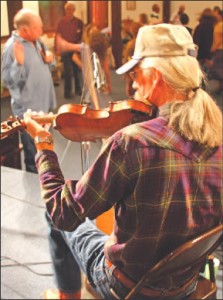To the Editor:
When I landed in Central Colorado at age 30, I hadn’t learned much of anything useful. Oh, I had excelled in high school, but I didn’t want to spend my life in a classroom or an office, employed by a corporation or an institution. I needed to learn to work with my hands, beyond kneading bread and repairing a lamp cord. I started at the bottom, with a pick and a shovel and a membership in the Leadville local of the Laborer’s union.
So, I’d like to talk about education. George Sibley, regular contributor to these pages, recently suggested a new approach to education. I imagine he was the sort of teacher who might have given eye-opening assignments, like comparative oatmeal (no, the little plastic packet isn’t much faster than a handful of regular old oats, once you factor in the time spent finding scissors to cut open the envelope…)
With maybe 80% of our population now living in cities, we need teachers who know how to work with their hands, and think for themselves, particularly in rural areas whose people control our real destiny – our land. Our students ought to learn less about mass marketing strategies and more about kneading dough and pruning fruit trees, less about socialist tyranny and more about the history of grassroots peasant co-ops worldwide.
Sibley citied the Rural Electrification Administration as an example of a cooperative venture which worked, a way that government used it’s leverage to gain a long-lasting return for all concerned. We have also read in these pages about the Rio Grande Reservoir system, another example of rural cooperation. Farmers from Nagasaki to Nairobi knew the meaning of “commune” long before the birth of Karl Marx, but if history is written by the victors, our victors have mainly written out the populists and taught us the names of kings, popes and generals, and our society encouraged us to seek out comfortable slots in the military-industrial complex.
Which surely explains why all the president’s advisors can suggest is, bailouts and band-aids, while we rural folk can put together a viable credit union which doesn’t invest in zombie derivatives, but does take care of our reasonable needs.
So far there’s been no news of any agribiz conglomerates going belly-up, but I’d like to think that we’ve got a ready reserve of knowledgeable farmers and ranchers who could step in and fill the vacuum if the time comes, and put the means of production back where it belongs.
All this cooperating can get a bit tricky, like herding cats, until we get the hang of it. Here again, the corporate victors have rewritten us to think in terms of top-down hierarchies, and we may have to relearn the notion of “the greatest good for the greatest number.” There’s a lot to be learned and a great need for teaching, and a need for teachers who’ve got a full-spectrum background and are willing to expound on Reality 101, comparative oatmeal, to a collective popular psyche mired in Barbie Doll museums and Darth Vader weapons. It’s gotta be a daunting task.
Thanks also to the publishers of Colorado Central, past and present, for devoting these pages to our continued education.
Slim Wolfe
Villa Grove, CO



